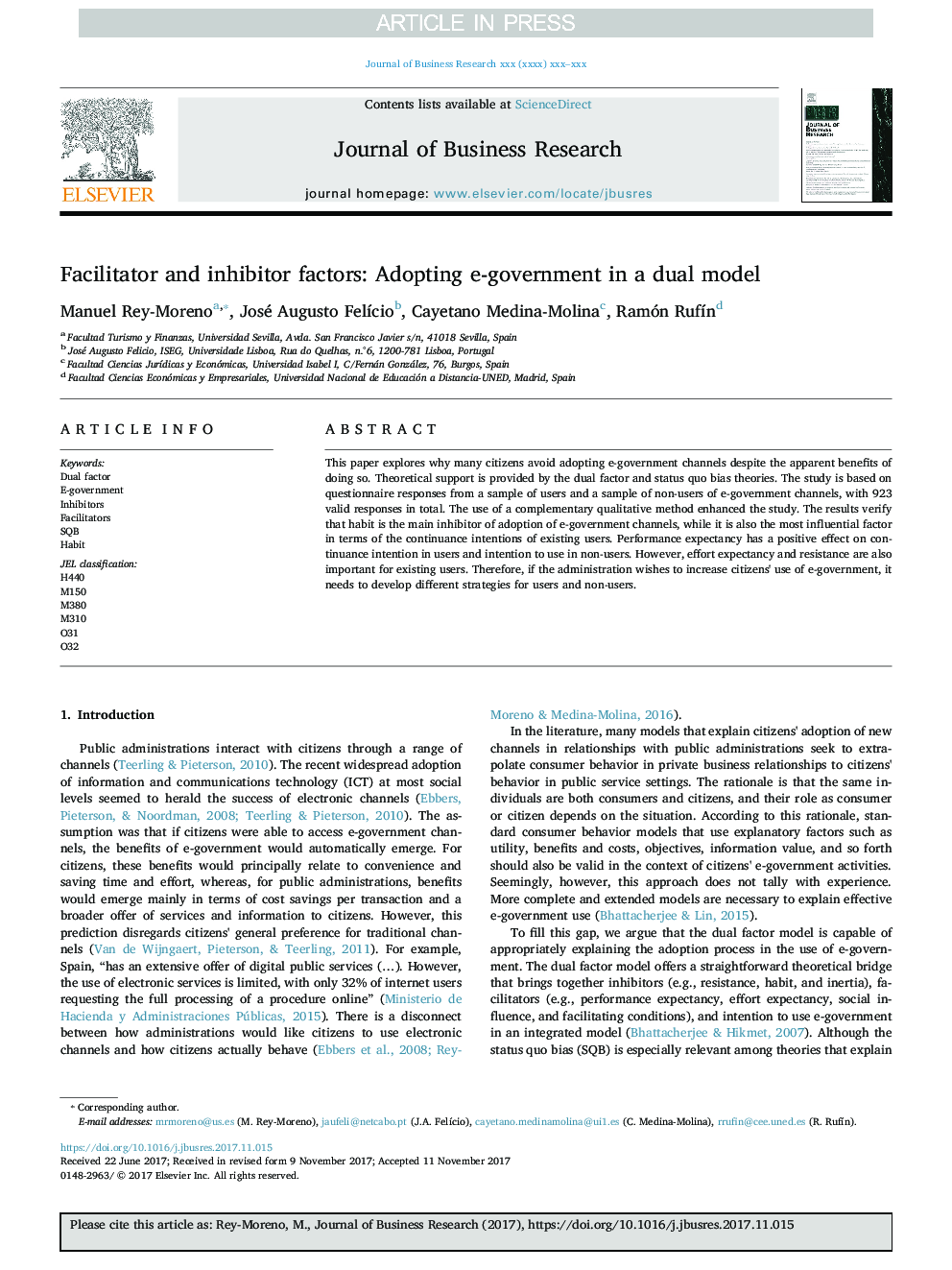| Article ID | Journal | Published Year | Pages | File Type |
|---|---|---|---|---|
| 7425108 | Journal of Business Research | 2018 | 8 Pages |
Abstract
This paper explores why many citizens avoid adopting e-government channels despite the apparent benefits of doing so. Theoretical support is provided by the dual factor and status quo bias theories. The study is based on questionnaire responses from a sample of users and a sample of non-users of e-government channels, with 923 valid responses in total. The use of a complementary qualitative method enhanced the study. The results verify that habit is the main inhibitor of adoption of e-government channels, while it is also the most influential factor in terms of the continuance intentions of existing users. Performance expectancy has a positive effect on continuance intention in users and intention to use in non-users. However, effort expectancy and resistance are also important for existing users. Therefore, if the administration wishes to increase citizens' use of e-government, it needs to develop different strategies for users and non-users.
Related Topics
Social Sciences and Humanities
Business, Management and Accounting
Business and International Management
Authors
Manuel Rey-Moreno, José Augusto FelÃcio, Cayetano Medina-Molina, Ramón RufÃn,
